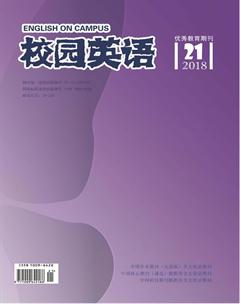Parental Involvement in Children’s Educational Process
ZHAO YUXIAN
【摘要】家長在教育中的参与度对学生的教育成果和人格养成至关重要,那么影响家庭参与,以及正确参与的因素有哪些呢? 作者通过文献综述,给我们一个作为教育研究着的见解:父母教育背景,家庭收入,语言交流能力,社会背景,性别,年龄,学校,教育者态度,孩子态度等。
【关键词】家长;教育
【作者简介】ZHAO YUXIAN , Queens University Belfast.
A significant element for childrens educational success is parental involvement. Parents attitude have the most profound impact on students personal, social and educational choices (Pimpa, N., 2003).
There are many studies on education, social and economic status of parents. Avvisati (2010) sited that parental engagement increases along with their socio-economic statues, but engagement and time decrease while the child grows; also, parents engage at slightly different levels depending on the sex of the child. However, parents from the US with advanced education and salaries allocate 70% more time for child care than the other mothers with a high school diploma or less (Guryan?et al., ?2008). An important reason is that parents economical advantages allow them to pay school tuition fees, get private tutors, and buy materials for their children. Less educated parents help less with high school homework and activities. Furthermore, the possibility for people with higher educational backgrounds to achieve finance freedom is much higher. Hence, the social status gets inherited generation after generation. As well as the social statues, parents cultural status contains the same weight for childrens educational success. Parents knowledge and experience is a useful tool for engaging with their children education process (Avvisati. F., et al., 2010).
Single parents were negatively connected with the involvement at school because of the time and cost; they can not always provide enough high quality participation (Desforges, C. and Abouchaar, A., 2003). Hamilton, Cheng, and Powell (2007) suggests that children will have a higher chance to achieve their potential in education when they live with both biological parents, not step-parents, for three main reasons:
◆ Two-parent families have more incomes and energy.
◆ More time and affection towards their children schools work.
◆ Two parents can monitor the childs life better than one.
Dr. Hoover (2005) argued that a teachers attitude and beliefs could hold parents back from engaging in school work sometimes. For example, when a teacher believes that some parents do not want to participate, they expect less and provide less information about that childs learning process, even if the parents actively engage (Brandt W. Pryor and Caroline R. Pryor, 2009). Language might be another barrier for parents because of different first languages and a teachers use of academic language. Public agenda (2012) stated that 25% of parents lack understanding of how their local school systems work — including their childs own school and nearly a quarter of parents can not identify/name their children learning process. Not surprisingly, in the same study, parents who are the most knowledgeable and involved have highest understanding. Parents who are the least informed and participated the least seem to be more likely to know little about their childrens academical results. As a result, these children are automatically getting disadvantaged compared to the rest of their peers.
Data from early years to high school illustrate that most parents spend less time with students or participate less frequently in schools activities when their children gets older (Avvisati. F.?, 2010). One reason could be the increasing difficulties of homework. Another might relate to the students attitudes in regard to parents engagement. Therefore, parents feel much more motivated when their children want them to be engaged (Hoover-Dempsey, K.V., 2005).
There appears to be a gap in the literature review about the impacts of a parents childhood experience in relation to their participation with child care and education. In my hypothesis, parents with unpleasant schooling experience or problematic childhood would have greater chances to raise their own children in the same way or less appropriately. Hopefully, this study can help flesh out this topic during the interview process.

